Share the post "14 Reasons Why Soccer Players Raise their Hands!"
Every soccer fan at some point has asked ‘Why are they raising their arms all the time?’. There could be several reasons why soccer players would raise their arms.
The main reasons why soccer players raise their arms during a game:
- To indicate a foul
- So they can communicate during set-pieces
- While celebrating a goal
- To communicate with their teammates.
- When injured
That’s just 5 of the 14 that we could think of. Communicating during a game can make a huge difference, so let’s take a look at when and why players raise their hands.
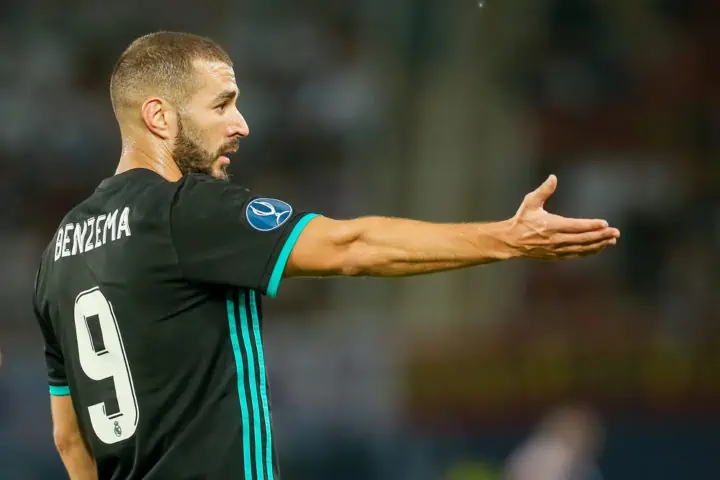
Letting the referee know about an offense
While most soccer players raise their hands to communicate with their teammates, they also do so to communicate with the referee.
They either do this to complain to the ref that he made the wrong decision, or they just want to have higher chances of him blowing the whistle for a foul.
Let’s talk about each case.
Complain to the referee about a ‘foul’
This is pretty subjective most of the time when most players just do it because the decision didn’t go their way.
They’ll just complain because they aren’t happy without acknowledging that the ref made the right decision.
Of course, this isn’t always the case as the referee might have made a mistake.
It’s even worse when the player from the opposing team dives and gets a free kick in return.
That’s when players usually get pretty angry with the referee.
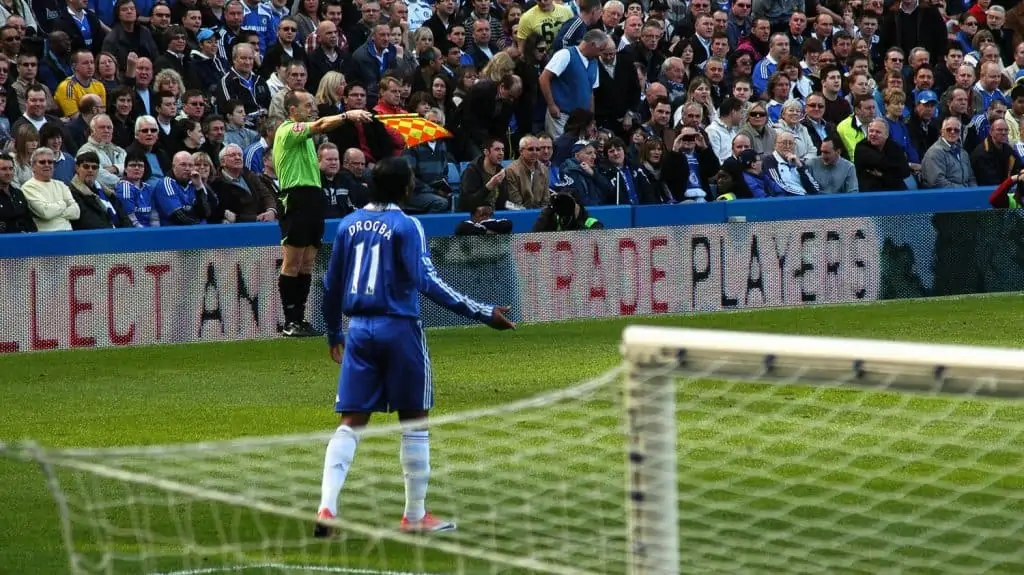
Offside
One of the worst feelings in soccer is when you’re through on keeper and the linesman raises his flag for offside.
It’s even worse if you think that you were truly not the closest player to the keeper, and that’s often when you lose your cool.
Just like players complain to the referee about a foul, they will also do it because of an offside call.
However, with VAR invented, you won’t see many of those calls wrong lately. The referee will usually allow the play to go on.
If the team with the ball scores a goal during the play and there was offside involved, the decision will be changed.
There have been lots of mixed feelings about VAR, and most players and fans don’t like it. It’s a pretty simple system but could be implemented a bit better in today’s game.
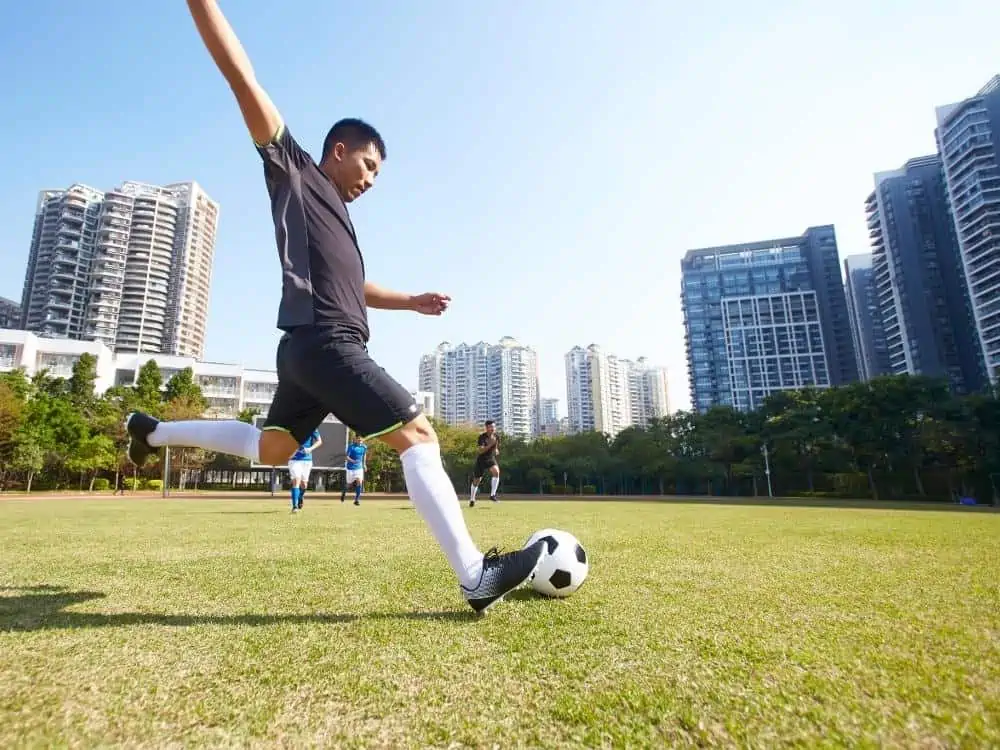
Try to impact the referee’s decision
This happens all the time in soccer. Players will more often than not raise their arms even if they don’t think their team deserves a foul.
Some of the best referees in the world will be unfazed by players raising their arms. And that’s how it should be. It’s his decision to make, even if he can get it wrong from time to time.
Some players will also just fall to the ground and everyone from their team will raise their hands even if they didn’t get touched by the opposing player.
Most soccer fans believe this to be such a cheap tactic to win free kicks or penalties.
This is usually the reason people from outside the soccer world believe it to be such a ‘soft’ sport. But, the truth is, the soccer world also frowns upon this tactic.
Soccer players will also complain about throw-ins.
Throw-Ins
Soccer players often raise their hands to ask for a throw-in during the game. It’s actually not always easy to notice who touched the ball last near a throw-in line, and the players will try to take advantage of it.
Even if it was pretty clear who touched the ball last, some players will raise their arms just to confuse the referee.
It doesn’t work most of the time, but it’s always a good try to win ball possession for your team.
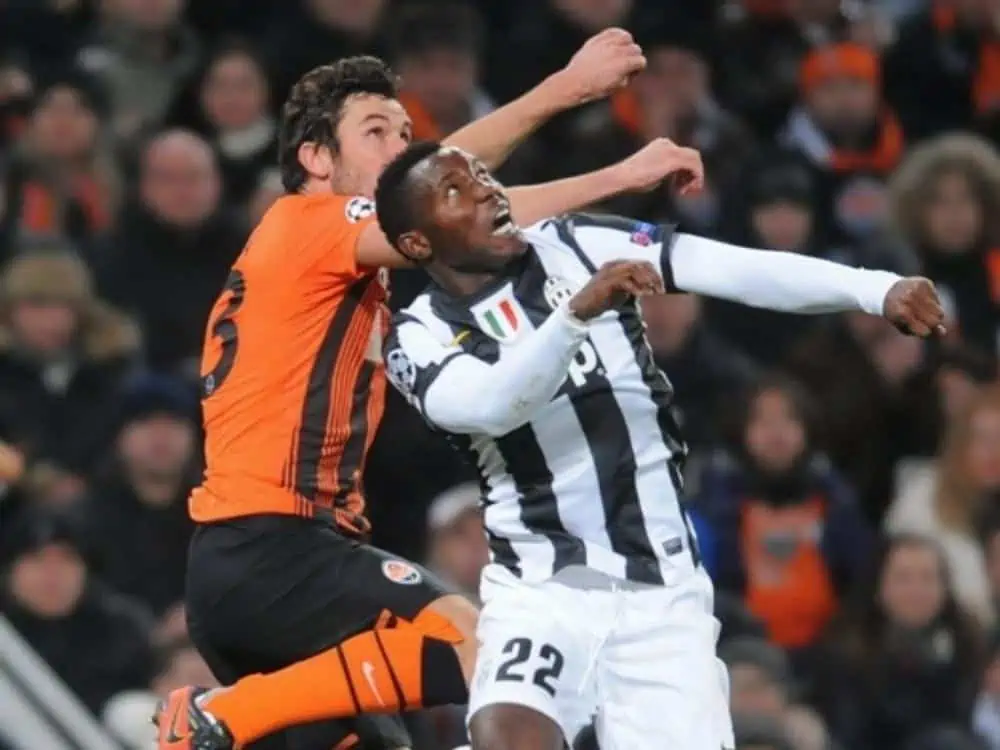
Communicating during set pieces
Players have been lifting their arms in the air to communicate during set pieces for a long time now. This isn’t anything new and there’s a good reason for it.
All teams work on their set-pieces during training sessions, and they usually have several different plays they want to try during real games.
They usually communicate with other players when there’s a corner or a free-kick from where a good cross could be whipped in, and they will usually have several hand signals to indicate which play they want to use.
The corner or a free-kick taker will be the one to raise their hands and his teammates will have to follow his call.
Celebrating a goal
Just like in any sport out there, celebrating a goal could be done by raising your arms. Of course, this isn’t the only way players will celebrate a goal scored.
In some cases, they might not even celebrate at all if the game is friendly or their team is winning by a large margin.
There’s just not much to it. Having played soccer, I know what a good feeling it is to score a goal for your team.
Sometimes, when you’re just that happy, you won’t even know what to do with yourself and will just raise your hands in the air.
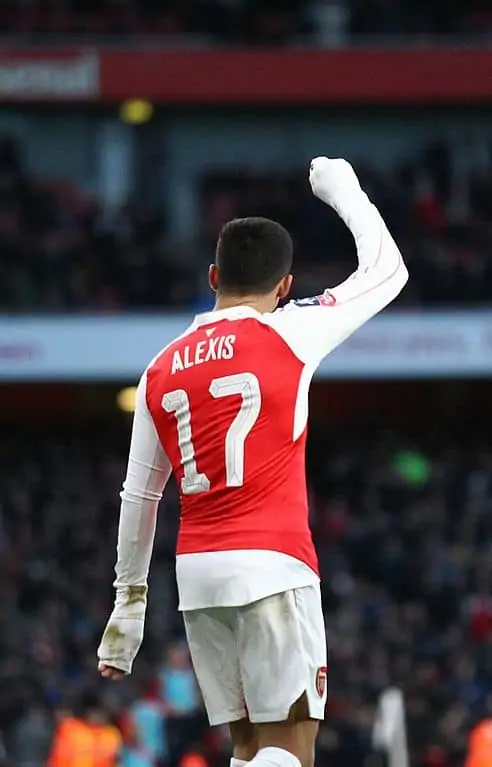
When scoring against a former club
You might ask yourself ‘What is the difference? Aren’t you just celebrating a goal as you normally would?’.
Well, most players don’t celebrate goals against their former clubs as a sign of respect.
Although, that’s not always the case as some players might’ve been badly treated by the previous club, or they don’t care about them.
Although, if a team has shown love for you during your time with them, it’s expected that you wouldn’t celebrate when you score against them.
Soccer players will raise their arms up in the air as a form of apology against their former club. It’s just one of the ways players will show that they still care for them even after leaving.
Communicating with teammates During the Game
Soccer players will use hand gestures to communicate with their teammates all the time during a soccer game. This is common in soccer as you can’t really talk to your teammates given the size of the field.
Why do soccer players communicate during open play?
These are the main reasons:
- To indicate to their teammates that they’re available for a pass
- Trying to explain tactics
- Calling players to cover a certain area
Available for a pass
It’s definitely not good for a soccer player to shout to their teammates when being open to a pass and there are two big reasons for it.
If you’re far away from the teammate that has the ball in possession, they won’t really be able to hear you because the crowd is too loud.
The second reason is that you most often won’t want your opponents to notice that you’re looking for a pass. The first one is self-explanatory but let’s talk about the second reason for a little bit.
Even though there are 11 players on the soccer field and someone will definitely see you while holding your arm up asking for a pass, you won’t want to alert the player guarding you that you’re available for a pass.
If you raise your arm before he notices, you will be one step ahead of the opposing player, and it will often be too late for his teammates to warn him about your movement.
You should always try to be sneaky in soccer since that one step can make a huge difference.

Explaining tactics
This is mainly something managers will do, but more experienced players do this often as well.
They might notice something during the game that the opponent has been doing well, and letting every player be aware of this can put an end to it.
Managers will also let the player that’s coming on as a substitute know what he should tell to other players.
Full-backs and wingers will be too far away from the manager and he won’t be able to communicate with them properly.
Calling players to cover certain areas
This is what goalkeepers and center-backs do most of the time because they see almost everything that’s happening on the field.
Opposing attackers will sometimes get open and you must tell your teammate to come back to defense to cover him.
This might save you from conceding a goal.
This is also true if you’re pressing the opposing defense. Midfielders will communicate with each other to try and cover every player possible and force their opponents to make a mistake.
When Injured
An injury is something you don’t want to see in any sports. It’s actually one of the saddest things that can happen for someone, and happily, it’s not always serious.
Soccer players will often just raise their hands upon injury to signal their manager that they need to get substituted.
They’ll either just ask for a substitution if they know they need it, or just sit on the ground and wait for the doctor to come and tell them how serious the injury is.
Share the post "14 Reasons Why Soccer Players Raise their Hands!"
Joel is a seasoned soccer journalist and analyst with many years of experience in the field. Joel specializes in game analysis, player profiles, transfer news, and has a keen eye for the tactical nuances of the game. He played at various levels in the game and coached teams - he is happy to share his insight with you.



